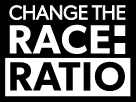In today’s challenging global landscape it’s easy to let ED&I priorities slip, thinking of them as a ‘nice to have’ while you’re solving the ‘big problems.’ But we believe that the thriving organisations in ’24 will be the ones that are continuing to integrate ED&I into their core business strategy.
Why? Because building a diverse and inclusive organisation is not just the right thing to do – it’s right for business too.
When we’re living in a world where uncertainty is the only constant, it makes sense to have a workforce that can tackle the ‘big problems’ from every angle, bringing together talent to provide the perspective that we might not need right now, but which is likely to be needed in the future.
Our signatories
Here, we speak to five of our campaign signatories about how companies can best maintain momentum in ED&I in ’24, and the key areas they should be focusing on to keep it at the top of the business agenda.
Thank you to Ruby Anandajayasekeram, Global Diversity and Inclusion Excellence Advisor at Shell, Donna Herdsman, Senior Client Partner, Head of DE&I Consulting (EMEA) at Korn Ferry, Jacqui Gavin, Head of ED&I at Britvic, Paul Modley, Director of DE&I at AMS and Caroline Rhodes, Global Inclusion & Diversity Director at Diageo for sharing their thoughts on the ED&I areas to focus on in the year ahead.
Keeping accountable.
Accountability is the backbone of ED&I efforts, ensuring transparency, genuine commitment, and measurable progress.
And it’s something that we champion at Change the Race Ratio when we ask our signatories to set and publish targets for ethnic minority representation on company boards and leadership teams.
Accountability that’s driven by and supported by business leadership is crucial, as it's this culture of leading from the top that will empower organisations to attract and retain dynamic, innovative, and competitive talent in the future.
Ruby Anandajayasekeram describes what Shell is doing; ‘ We have strong visible leadership and role-modelling of mindsets and behaviours at the top of our organisation, and we’re working to embed this at all levels.’
‘For example, we have an employee dashboard that provides insights on how we’re doing that all staff can access – it includes staff engagement survey scores for all DE&I related questions, progress against representation ambitions, and mandatory DE&I training and voluntary self-ID declaration rates.’
It’s exciting in terms of our next step in transparency, and as a way to support progress. We’re also focusing on embedding care, courage and curiosity in our DNA, asking leaders and teams to engage with their discomfort, have deeper conversations and take action. The metrics mean nothing if you don’t have a culture that supports a true sense of belonging for everyone – it really is about how each of us shows up, every day.’
Re-engagement with the workforce.
The past few years have been challenging economically, and our signatories all anticipated tough times ahead.
This is why it’s more important than ever that employees feel supported through the difficult external challenges that many organisations will be facing in 2024.
But how do you best provide that support? Our signatories all talked about the importance of continuing to listen to their workforce’s concerns, and the important role that their Employee Resource Groups (‘ERGs’) will continue to play.
Caroline Rhodes says, ‘At Diageo, our resource groups are hugely proactive and a great source of insight, partnering with us to create policies and practices that allow us to nurture an environment where everyone can thrive.’
‘These resource groups are also great advisors, particularly when a leadership team or business group wants to make progress in a specific DEI area but isn’t sure where to start or doesn’t have the lived experience that is crucial to addressing a DEI need.’
Maintaining ‘buy-in’ from middle management.
Middle management has a crucial role to play in driving race equity, and their buy-in and active support are crucial.
Managers are often the ones executing ED&I strategies and have a big influence on workplace culture and behaviour. There’s a huge amount of potential and opportunity in the middle of organisations, but people are also stretched and busy.
Jacqui Gavin describes it as ‘the five-sense approach, because, yes, a strategy can give you some sort of direction. An action plan can say, we’re going to do this - by this time. But unless you absolutely bring the people along with you, you can end up in the kind of world we’re in right now, which is a polarised society.’
Going beyond data collection to interpretation.
While many organisations now collect employee ethnicity data, its full potential often remains untapped beyond pay gap reporting.
Data can serve as a powerful tool to drive business decision making and ensure actions are targeted and impactful.
Looking forward, it’ll be important to look beyond data collection towards data disaggregation, looking more deeply at attrition rates, promotion and progress through the intersectional talent pipeline lens.
Donna Herdsman says, ‘analysing data can really help us to understand the diverse employee experiences within an organisation. You can look at how long someone from an ethnic minority background has been at the organisation and how long it’s taking them to be promoted when compared to their peers. And in doing so, the data can actually lead you to invest more deeply in understanding if inclusion and equity is an embedded part of their lived experience.’
Ultimately, data isn’t just about the numbers; it can offer a broader perspective. Data’s not just about the ‘what’. It should also be about understanding the ‘why’ behind organisational dynamics and individual experiences.
Artificial Intelligence (AI). A trend that will continue to be important.
AI continues to present a game-changing opportunity for workplace ED&I by addressing unconscious bias, streamlining processes and improving communication.
But while there’s significant interest in AI, concerns persist. Can we really trust it? Is it truly unbiased, or does it actually perpetuate existing biases? And what governance implications does it present?
For Paul Modley, AI is an inevitable part of our future, and one that has huge transformative potential. But looking ahead, the challenge will lie in ensuring AI’s fairness and functionality.
He says, ‘I’m positive about that the role AI can play both in streamlining processes and changing the way people operate.’
One thing is clear; ignoring AI is not an option.
Conclusion.
As businesses navigate the complexities of a changing and challenging global landscape, integrating race equity into their core strategies has never been more important.
Our five signatories described how through ongoing commitment, active listening, continuous learning, and purposeful action, the path toward achieving race equity remains possible.
And yes – it can be daunting to look at the whole of the task ahead.
But the key is to show up, commit, and make progress every day.
Because there is no one right way to make progress. But if you set goals and you’re transparent and accountable, you can start to create that momentum.
So start by thinking – what can I do differently tomorrow.



